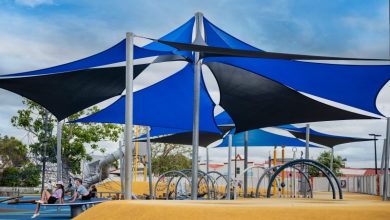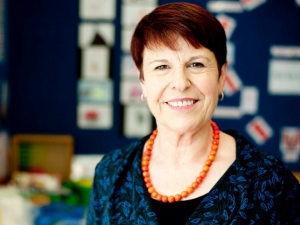The impact a philosophy had on raising student achievement

 Two and a half years ago I began my second principalship at a decile 1b school in South Auckland. The school catered for students in years 1-8 and most students were achieving below National Standard in Reading, Writing and Maths. The roll consisted of approximately 500 students who were mainly from Maori and Pasifika backgrounds and the school operated eight bilingual classes; five Tongan, two Samoan and one Maori.
Two and a half years ago I began my second principalship at a decile 1b school in South Auckland. The school catered for students in years 1-8 and most students were achieving below National Standard in Reading, Writing and Maths. The roll consisted of approximately 500 students who were mainly from Maori and Pasifika backgrounds and the school operated eight bilingual classes; five Tongan, two Samoan and one Maori.
I looked forward to the challenge of significantly raising student achievement. I decided to use a very useful philosophy that had influenced my personal and professional life previously. The “FISH” philosophy is based around a book that an owner of a fish market in the United States wrote to describe his business success. This man was called Stephen Lundin. Basically he identified the following practices that improved and generated more business for the market:
• Be present
• Make someone’s day
• Have fun
• Choose your attitude
Such simple but hugely effective practices that would be my starting point in developing an inclusive school culture where student achievement was foremost.
Step one was to form positive relationships with students, staff and the parent community. This step was no different from what any other new principal would do in establishing themselves at a new school. Therefore, I was visible – at the school gate where possible in the mornings and afternoons, playing with students in the playground, introducing myself to parents at every opportunity and acknowledging all stakeholders whenever the opportunity arose. I visited various classrooms at least once a day to identify how I could influence and change practices that were not meeting the needs of our students. This step meant I was ‘being present’; I was visible and present to address issues as they arose. I also turned up for work everyday modelling the practice that being present meant more opportunities for teaching and learning.
The school community had become used to the style and methods of the previous principal who had led the school for many years. Therefore, there was a certain level of mistrust amongst stakeholders with “the new broom sweeping clean”.
My challenge was to build trust with all stakeholders whilst balancing a sense of forging towards a common vision…that of ensuring every student and staff member felt happy and safe about coming to school and that the core business of teaching and learning was producing successful outcomes for students. I deliberately focused on developing an inclusive school culture that consisted of the other three components of the “FISH” philosophy.
Step two was to further develop a fun environment. I identified the ‘drivers’ throughout the school for both teachers and students and introduced a variety of programmes that encouraged them to participate more actively. We introduced a ‘house’ system and named the houses after acclaimed sport role models from South Auckland: Wiki, Tua, Adams and Rush. What excitement when the teams competed during a day to introduce the concept! The school became alive with chants, acknowledgements and good clean fun. Sport leaders organised games during break times regularly which in turn managed otherwise inappropriate behaviours. There was often discussion throughout the school between staff and students brainstorming fun ideas and most importantly, following through.
The drivers kept driving and introduced “secret angel” weeks where staff were spoiled by secret staff members and at the end of this fun week all was exposed at a Friday afternoon social time. This created opportunities for Step Three. Staff began to understand the power of making someone’s day by spoiling each other and transferring this practice into the classroom.
A year 8 student leadership programme was established to provide positive student role models to younger students in the school. This became step four where students and staff understood the importance of ‘choosing your attitude’. Monday morning Values Assemblies were introduced, that were lead by year 8 student leaders. I was provided a time to speak where I ‘set the weather’ for the week by choosing a consistently positive attitude. I ensured I was upbeat, happy to be at school, and focused on one or two things that could be achieved by teachers and students by the end of that week. It was a time to ensure that we all knew where the goalpost was and how we could get there. Once again, teaching and learning foremost and shared expectations clear.
Staff and students practised a philosophy that was easy to remember, the drivers sustained the momentum and data analysis proved that the philosophy had impacted on raising student achievement outcomes. Our analysis of variance consistently identified improvement in reading, writing and maths over two and a half years. The culture of the school developed via this foundation of choosing my attitude, turning up for school every day, making someone’s day great and most importantly, making teaching and learning FUN!!









